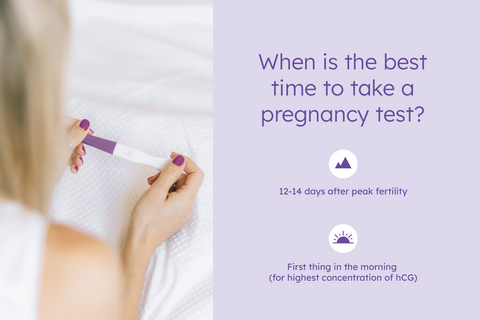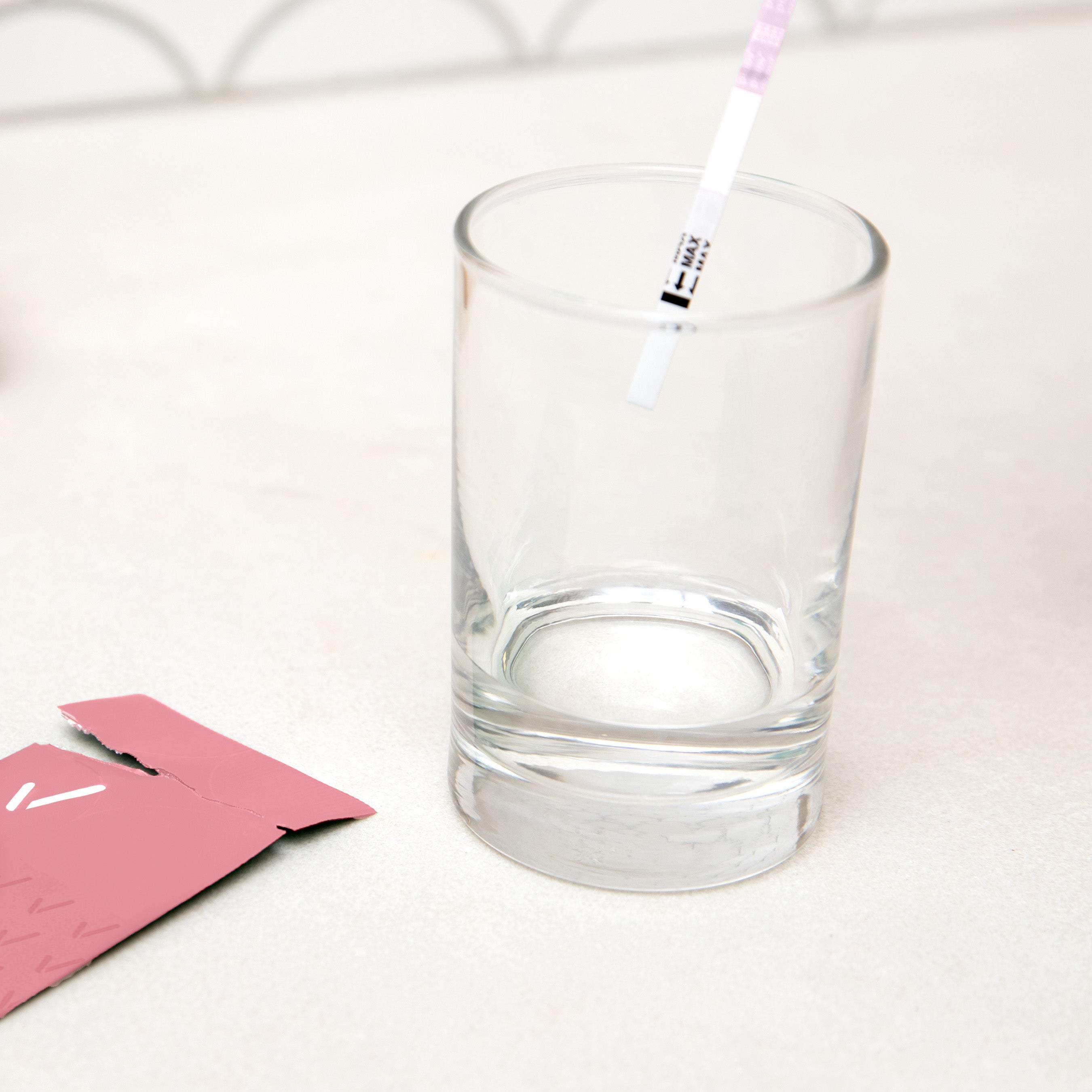Congratulations! You’ve made the decision to be open to life.
Whether you’re new to trying to conceive or have been at it for a while, the cyclic question of, “Am I… or am I not…” is very different from the relatively carved-in-stone impossibility of pregnancy when on birth control. This mental shift deserves recognition and a small “pat on the back” for the courage to be open.
Many women who have never made a conscious effort to try to get pregnant have no idea how to determine if they are possibly pregnant. Before we dive into the technical details of when to do a home pregnancy test, let’s make sure you’re doing the following “trying” or “open to life” behaviors:

- Off hormonal birth control and taking a prenatal vitamin
- Tracking your menstrual period so you know when “Aunt Flo” is late (bonus points if you are also tracking signs of ovulation to be aware of your “fertile window”!)
- Open communication with your partner and shared desire to have intercourse on days of possible conception
Though somewhat obvious, these are all important boxes to check off that help minimize unnecessary drama and inconvenience. In the world of fertility and reproductive health in general, it’s best not to assume. Enter the importance of testing.
When is the best time to take a pregnancy test?
Pregnancy tests detect a rise in the pregnancy hormone hCG or human chorionic gonadotropin. HCG is made by the cells of a newly forming placenta and therefore will not rise until your new little life has burrowed into the lining of your uterus in a process called implantation.
Implantation is thought to occur 6 to 10 days after conception. Conception, of course, is the joining of sperm and egg to create a new human life so it had to have occurred around the time of ovulation. Six to 10 days after ovulation is often when women who have conceived may experience implantation bleeding.
Implantation tells the uterine lining to start making a placenta to support the new life. Since it’s the placenta that makes hCG after implantation, there’s no point taking a pregnancy test less than 11 after ovulation and possible conception because that wouldn’t be enough time for the placenta to establish itself and start making HCG.
Conception then subsequent implantation and pregnancy occurs in the phase of your cycle known as your luteal phase. The luteal phase is also known as the post-ovulatory phase: it starts the day after release of the egg (ovulation) and ends the day before your menstrual flow starts if you are not pregnant.

How early can I test for pregnancy?
Bloodwork to detect pregnancy can pick up hCG in your blood as soon as 11 days after ovulation/possible conception. To detect hCG in urine, as in home pregnancy tests, it’s best to wait until 12 to 14 after you think ovulation and conception occurred. Proov Check Early Pregnancy Tests can detect pregnancy levels of HCG as soon as 5 days before your next expected menstruation.
In a healthy early pregnancy, hCG will double every 3 days as the placenta that is supporting your baby gets bigger and stronger. The longer you wait, the easier it will be to read the result of your home pregnancy test.
For those who are charting their signs of ovulation, good for you! Knowledge of when you ovulate allows you to know the usual length of your luteal phase. If your luteal phase is going longer than usual, it’s a good time to test for pregnancy.
As a specific tip for those charting signs of ovulation, if you are charting basal body temperature (BBT) and have identified a shift that is sustained for more than 17 days, go for a test!

What is the best time of day to take a pregnancy test?
Standard urinary pregnancy tests (aka home pregnancy tests) detect hCG levels between 20-50 milliunits per milliliter of urine. While the dilution of your urine shouldn’t change the accuracy of the test result, it’s thought that first thing in the morning is the best time of day to ensure the highest possible concentration of hCG in your pee.
What if the test result is not what I was expecting?
If you were expecting a positive and got a negative, re-test in one week. Ovulation is notorious for shifting a few days here and there causing variation in your cycle length and the arrival of your menstrual flow.
Go about your regular self-care routine (okay, maybe give yourself some extra attention) as you wait for either the arrival of your flow, or another opportunity to test.
While false negatives can happen if you test too soon, home pregnancy tests are usually accurate for positive results. If you were expecting a negative and got a positive, visit your OB/GYN to determine how far along you are and discuss options for prenatal care and support.
Are you trying to get pregnant or want to test for pregnancy? Try Proov Check!













